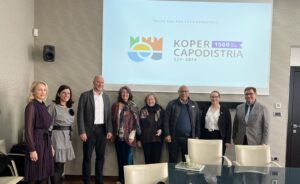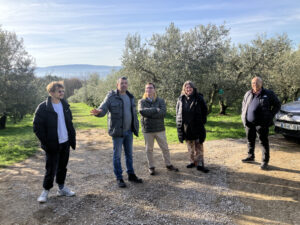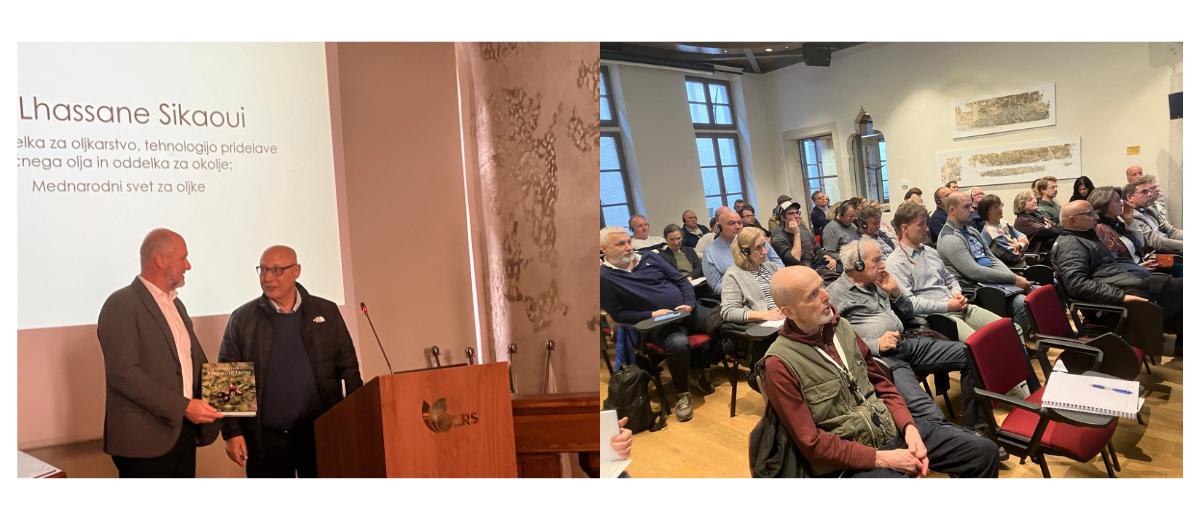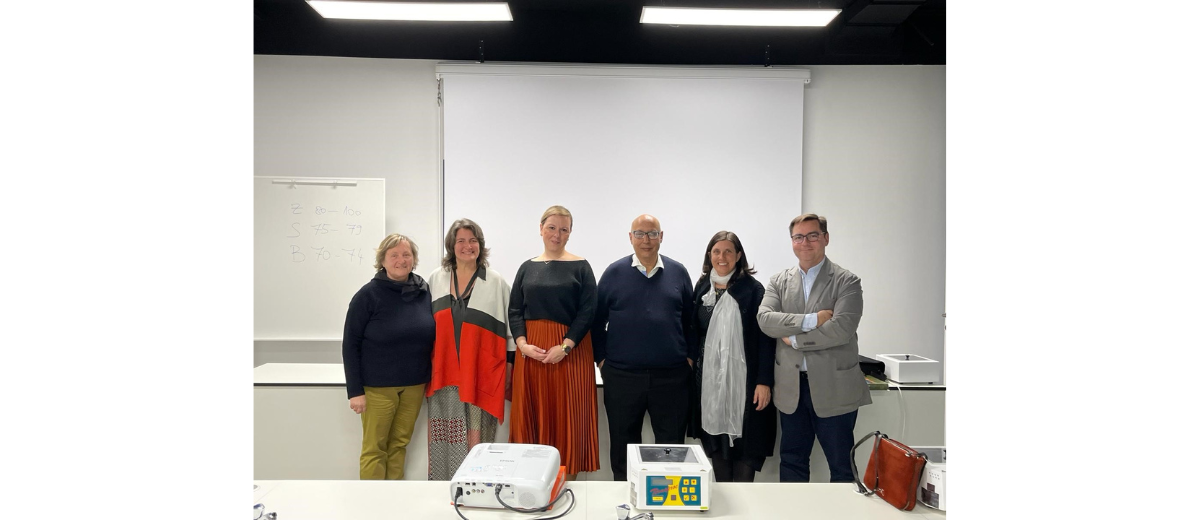The Slovenian Institute for Oliveculture hosts the IOC’s Technology and Environment Unit
The IOC’s Olive Growing, Olive Oil and Environment Unit travelled to Slovenia from 14 to 17 February at the request of the European Union and following an invitation of the country’s Institute for Oliveculture (IZO), headed by Maja Podgornik. The visit was centred around the organisation of a workshop on fertilisation and cryptogamic diseases of the olive tree. The IOC delegation also had the opportunity to visit the Slovenian olive growing sector, conduct technical visits, participate in sector related workshops and meet with several high-level representatives, including the Slovenian Minister for Agriculture, Forestry and Food.
 Among the highlights of the mission was the meeting with the Slovenian Minister for Agriculture, Forestry and Food, H.E. Ms. Mateja Čalušić and other ministerial representatives, including Maša Žagar, Director General for Agriculture; Gašper Kosec, Head of the Sustainable Agriculture Sector; Prof. Rado Pišot, Director of the Science and Research Centre Koper (ZRS Koper); Maja Podgornik, Head of the Oliveculture Institute; and Tanja Polak Benkič, responsible for olive cultivation (14 February). The Slovenian delegation provided a presentation of the state of olive cultivation in the country, with emphasis on the high costs related to olive oil production. In its turn, IOC representatives presented the Organisation’s many activities and welcomed Slovenia’s participation in them, particularly focusing on the importance of olive tree genetic resources and the possibility of transferring healthy, authentic olive genetic material at the request of Slovenian institutions to expand the country’s olive collections. Importance was also given to the IOC’s work on the olive orchard’s carbon balance, which requires the support of all IOC member countries with a view to determining the role that olive growing can play in carbon sequestration.
Among the highlights of the mission was the meeting with the Slovenian Minister for Agriculture, Forestry and Food, H.E. Ms. Mateja Čalušić and other ministerial representatives, including Maša Žagar, Director General for Agriculture; Gašper Kosec, Head of the Sustainable Agriculture Sector; Prof. Rado Pišot, Director of the Science and Research Centre Koper (ZRS Koper); Maja Podgornik, Head of the Oliveculture Institute; and Tanja Polak Benkič, responsible for olive cultivation (14 February). The Slovenian delegation provided a presentation of the state of olive cultivation in the country, with emphasis on the high costs related to olive oil production. In its turn, IOC representatives presented the Organisation’s many activities and welcomed Slovenia’s participation in them, particularly focusing on the importance of olive tree genetic resources and the possibility of transferring healthy, authentic olive genetic material at the request of Slovenian institutions to expand the country’s olive collections. Importance was also given to the IOC’s work on the olive orchard’s carbon balance, which requires the support of all IOC member countries with a view to determining the role that olive growing can play in carbon sequestration.
 The IOC’s experts also visited the Slovenian Institute for Oliveculture and IOC-recognised sensory and physico-chemical analysis laboratories, headed by Milena Bučar-Miklavčič. The discussions with experts were centred mainly around the Slovenian olive varieties listed in the IOC’s World Catalogue of Olive Varieties, and the possibility of supplying Slovenian collections with genetic resources available under the THOC project.
The IOC’s experts also visited the Slovenian Institute for Oliveculture and IOC-recognised sensory and physico-chemical analysis laboratories, headed by Milena Bučar-Miklavčič. The discussions with experts were centred mainly around the Slovenian olive varieties listed in the IOC’s World Catalogue of Olive Varieties, and the possibility of supplying Slovenian collections with genetic resources available under the THOC project.

The delegation conducted technical visits to some of the country’s olive oil mills and visited the Municipality of Koper, an olive-growing region, where they were greeted by Mateja Hravtin Kozlovič, Vice-Mayor, and other representatives of the municipality (February 15 – 16).
Finally, the mission culminated with the IOC’s participation in a workshop on fertilization and cryptogamic diseases of the olive tree, jointly organised by the IOC and IZO and animated by the experts Juan Moral and Prof. Ran Erel (February 16 – 17).

Background
Slovenia is one of the IOC’s 45 member countries, represented by the European Union as the Member State. Since 1994, the Institute for Oliveculture (IZO) oversees the social, professional, scientific, technological and economic growth of olive cultivation in the country. The Slovenian Ministry of Agriculture, Forestry, and Food appointed the institute in 2017 as a public service provider in the field of olive growing, within which the IZO acts as the national coordinator for olive-culture.
The IOC’s Olive Growing, Olive Oil Technology and Environment Unit was represented by Lhassane Sikaoui, Head of Unit, Catarina Bairrao Balula, Head of the Technical Cooperation and Training Department, and Juan Antonio Polo Palomino, Head of the Olive Oil Technology and Environment Department. The Unit is in charge of ensuring that the most modern and efficient techniques are used all along the olive oil production line. This includes promoting technical cooperation, research and development in olive growing by encouraging both public and private, national and international organisations and/or bodies to cooperate together.










